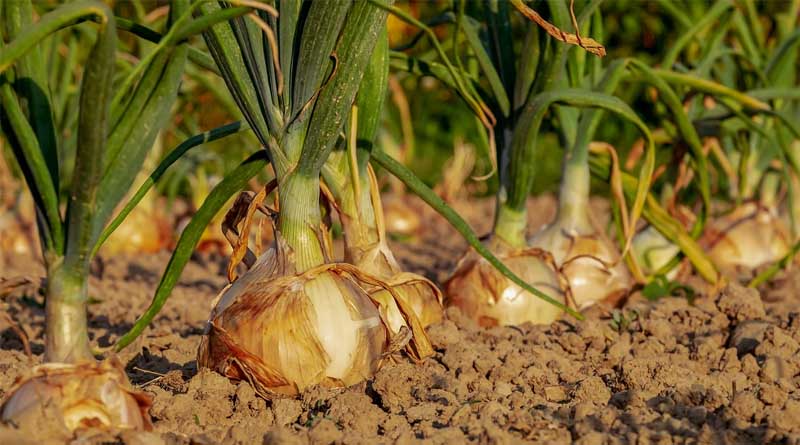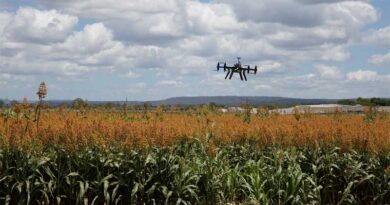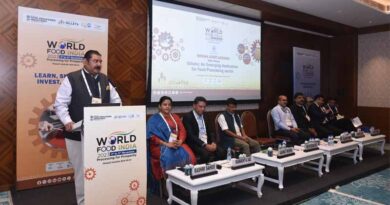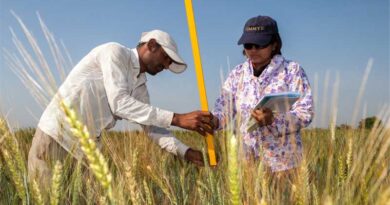Efficiency and Sustainability: How Technology is Reshaping Agriculture and Food Processing in India
Guest Author: Saket Chirania, Co-founder of Agrizy
27 July 2023, New Delhi: India’s rich agricultural heritage has long been the backbone of its economy. However, with a rapidly growing population, the effects of climate change, and the need for efficient food processing, traditional practices are no longer sufficient. Technology plays a crucial role to address these challenges and ensure food security, increase productivity, improve the lives of the farmers, and enhance processing capabilities.
In the past decade, there has been a remarkable surge in technological advancements in the agritech and agri-food processing sectors in India. Precision farming, farm management systems, automated processing machines, and high-speed packaging systems are just a few examples of innovations transforming agriculture and food processing. These technologies have the potential to revolutionize the lives of millions of farmers and consumers in the country.
Precision farming is one area where technology is making a significant impact. Through the use of sensors, drones, and satellite imagery, farmers can gather real-time data on soil health, moisture levels, and crop growth patterns. This data enables informed decision-making regarding irrigation, fertilization, and pest control. By optimizing resource usage, precision farming reduces costs, minimizes environmental impact, and increases crop yields, contributing to a more abundant and reliable supply of raw materials for the agri-food processing industry.
Furthermore, advancements in processing equipment and machinery have revolutionized the efficacy and quality of food processing in India. The implementation of automated sorting and grading machines, high-pressure processing, and vacuum packaging systems has resulted in faster, more accurate, and hygienic processing of food products. These technological innovations not only minimize wastage but also guarantee that consumers receive food that is safely packed with essential nutrients. By streamlining the processing procedures, these advancements contribute to the overall sustainability and profitability of the agri-food sector, while also meeting the increasing demands for high-quality, safe, and nutritious food products in both domestic and international markets.
Emerging technologies like data analytics and artificial intelligence (AI) have the potential to unlock further optimization and innovation. AI algorithms can analyze vast amounts of data, identify patterns and trends, and optimize production processes and supply chains, ultimately improving operational efficiency and reducing costs. While agriculture practitioners have already hopped on the AI bandwagon and have begun to reap its benefits, the agri-food processing sector is yet to adopt the technology on a larger scale. Nevertheless, new-age technological concepts, if put to use, can promise unprecedented growth to agricultural and allied sectors.
Technology is also driving sustainability in agriculture and food processing. Smart technologies are being used to efficiently utilize resources such as water and energy. Intelligent control systems optimize energy consumption during processing, while water recycling systems help conserve this precious resource. These sustainability-focused solutions benefit the environment and contribute to the long-term viability of the sector. Additionally, novel preservation techniques made possible by technology, such as cold storage and high-pressure processing, extend the shelf life of perishable products without compromising their nutritional value. This reduces food waste, expands market reach, and ensures access to safe and nutritious food for a longer period.
While the emergence of technology in the agritech and agri-food processing industries is worth celebrating, it is essential to address certain challenges to ensure inclusive and sustainable growth. Access to technology and training for farmers and small-scale processors, especially in rural areas, remains a significant hurdle. Bridging the digital divide and ensuring that all stakeholders, from farmers to food processors, can benefit from these advancements is crucial. Collaboration among the government, private sector, and civil society is vital in developing and implementing inclusive policies and initiatives that foster the adoption of technology and support the growth of the agritech and agri-food processing sectors.
Technology is transforming the agritech and agri-food processing sectors in India. Precision farming, advanced processing equipment, sustainability-focused solutions, and the integration of data analytics and AI are revolutionizing the way agriculture and food processing are approached. While challenges persist, collaboration among stakeholders is key to ensuring inclusive and sustainable growth in these sectors. By harnessing the power of technology, India can enhance its food security, increase productivity, improve the lives of farmers, and position itself as a leader in the global agri-food industry.
Also Read: ITC releases an exclusive postal stamp on Millets in collaboration with India Post
(For Latest Agriculture News & Updates, follow Krishak Jagat on Google News)















